Oaken is a small but smart tactical puzzler
Climb a tree and get into plenty of fights.
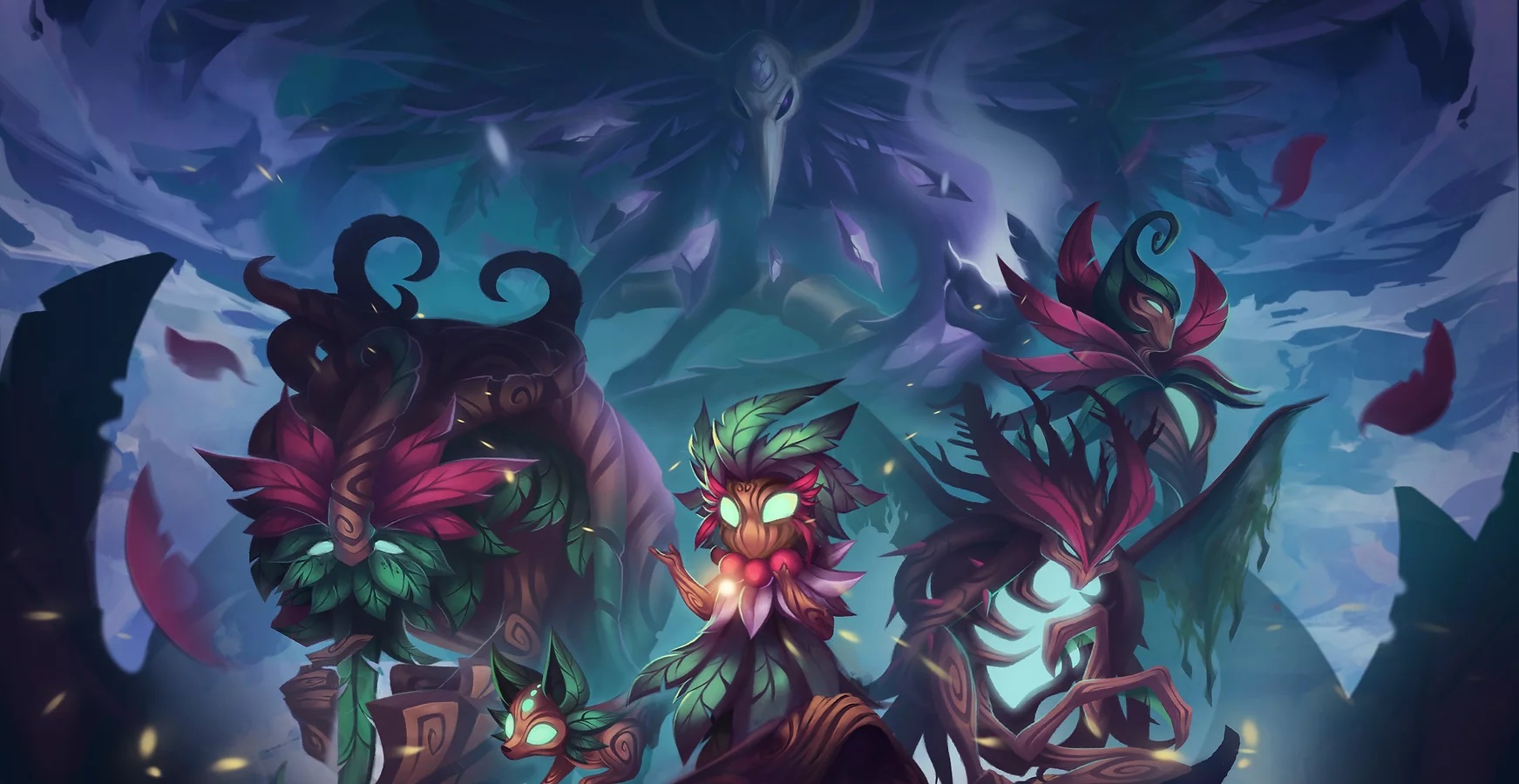
In the words of competitive baking show judges everywhere: if you're going to go for something simple, you have to execute it perfectly. With its small levels, tight scope and visual polish, Oaken is—or is on its way to be—that idealised Victoria sponge of tactical roguelikes.
Oaken is a simple game. You control your units on a hexagonal grid representing a section of a spirit-infested tree, the Great Oak. Each unit takes one action and moves one tile per turn. They can attack—and counterattack—any unit in their handily highlighted frontal arc, and placing units, casting spells, and using skills all burns a turn-limited resource. That's it: that's the game. OK, there's a little more to it than that, but it's all supplemental to these core fundamentals.
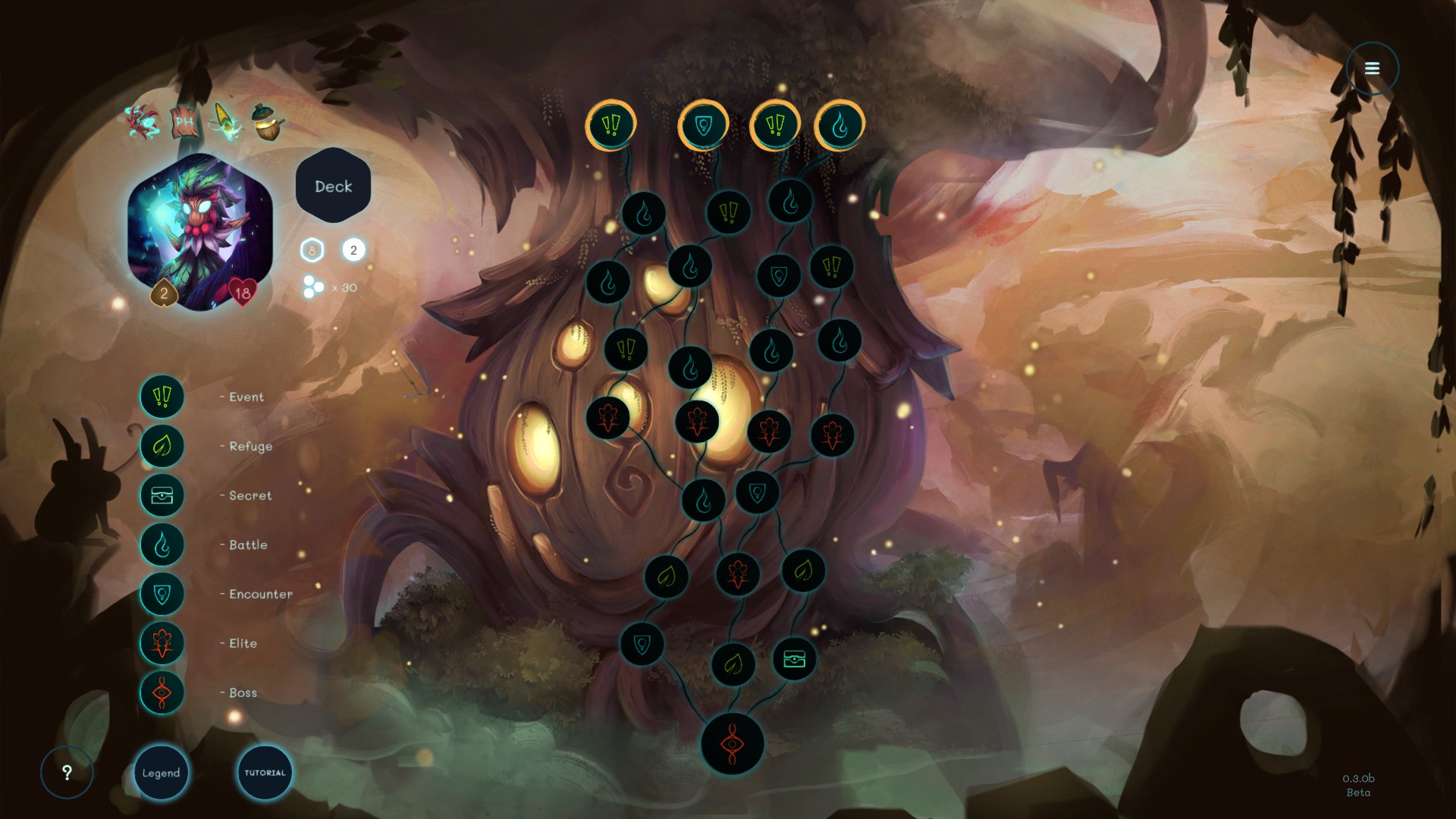
Across three acts, and that familiar roguelike branching route map, Oaken teaches you how to think about playing it. It keeps a strong focus on satisfying short-term tactical thinking, while keeping long-term decisions quietly on the backburner, and strips out a lot of the frustration of death-by-randomisation.
A strong, simple focus shouldn't be mistaken for being overly easy, though. In the first act, for instance, each level is a race against time. After a certain number of rounds, poisonous fog will fill the zone: game over. Carelessly aggressive play will only sacrifice your units, but being too precious will let newly spawning enemies overwhelm you until that fog cloud comes.
You start with a small deck and can only play each card once before it becomes 'unstable'. Playing that card again will exhaust it either permanently or until the end of the act, depending on your difficulty setting. There aren't opportunities to add new cards to your deck outside of fights, so it all ties together into an emphasis on precise, smart play. Your health resets in each level, so each one is about solving it correctly, not compensating for past mistakes.
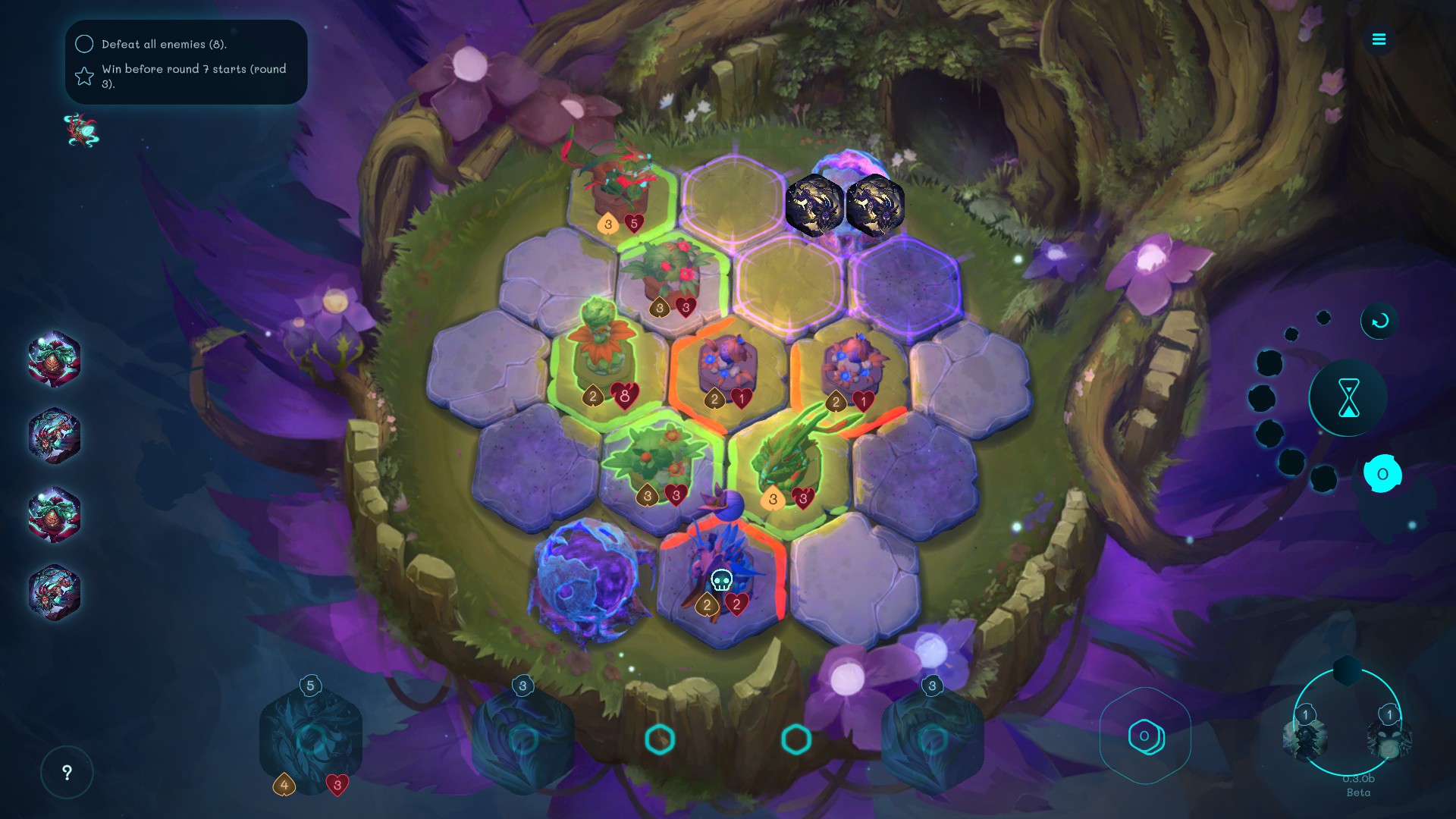
This balance isn't perfect, and I had a lot of early game false starts. Your build is really defined by your first trinket, which are boons rewarded by bosses and elites. Before then, standard fights can be quite swingy in terms of difficulty, and some optional objectives (which reward you with the Lumi Dust used to upgrade cards) are logistically impossible. Once I'd staked any kind of build, though, progress was down to my own good or bad decisions.
Plant food
Most of your long-term tactical decision making is done around upgrades, and when it comes to upgrading your units in more meaningful ways than health and damage, there are a few different trade-offs you can make. You actually make upgrades with physical resources—with wisps or Lumi Globes—and you can end up trading maximum health, skills, or permanently losing your guardian to get them. Once you have them, there's an additional decision about when and how to use them: should I apply this wisp that expands the frontal arc to one unit, or save it in case I have a better unit later? Do I spend a globe upgrading this spell before a boss fight, or wait until after the boss fight so I can try to synergise with the resulting trinket?
The biggest gaming news, reviews and hardware deals
Keep up to date with the most important stories and the best deals, as picked by the PC Gamer team.
Oaken leans into the puzzle-like, particularly with its optional level objectives. One elite fight I particularly liked had two overindulged monsters where one was asleep while the other was awake—and you received bonus rewards for defeating both in the same turn. Some encounters aren't fights at all, but pure puzzles—just challenging the way you think about your units, and what they can do. By the time I reached the final boss of the third act, I felt like the entire game had been training me for it.
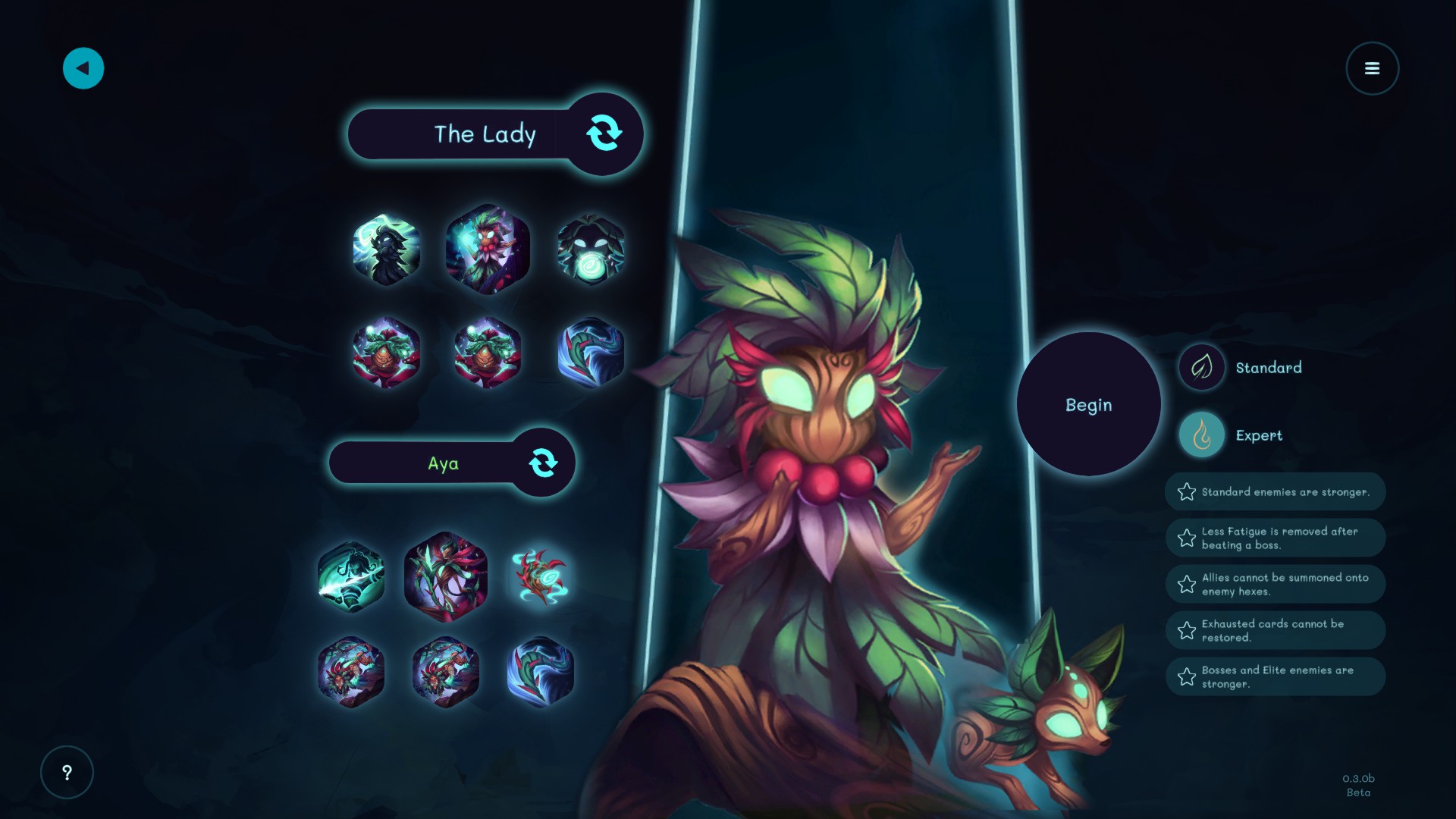
I try not to let a visually polished game sway me if the underlying stuff isn't all there, but having established that its stuff is mostly solid, I'd be remiss to not point out that Oaken is really, very nice to look at, and it's proud of it too. While looking at your deck, you can choose to see full-size renders of your units in all their glory.
Even the small size versions that scoot to-and-fro across the board are charmingly illustrative of what they do: your big tanky defender that keeps other units from moving away from its frontal arc has giant wooden hands; your ideally immobile long-distance shooter a tall, grounded plant; your high damage unit a lithe predator.
It would be nice if it were easier to visually tell when a unit's actions were 'spent' though – whenever I had more than a few units on the board and turns were taking longer, I did end up just grabbing at them to check if anyone was still moveable before ending my turn, which isn't the most sophisticated option.
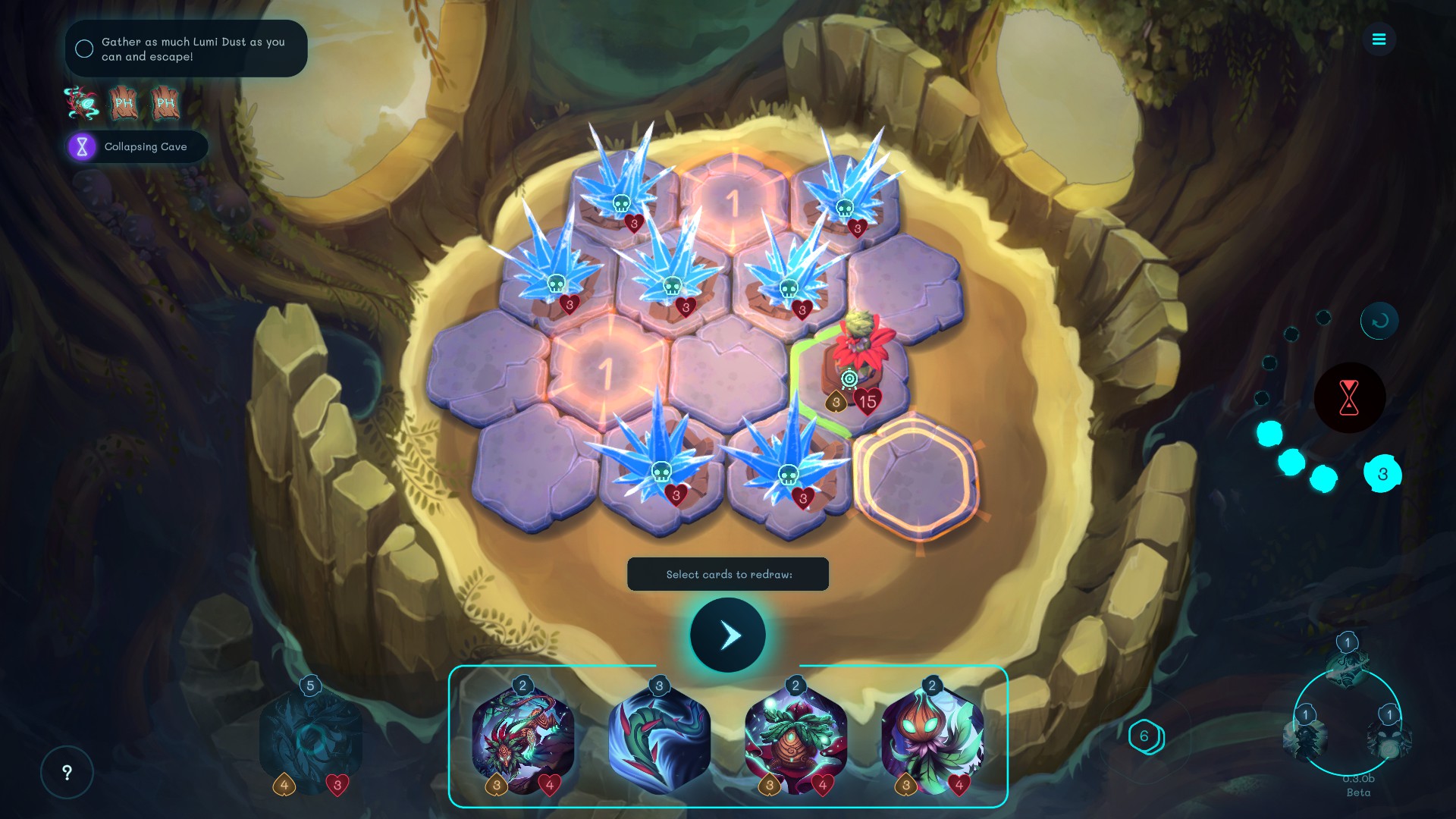
The early access version of Oaken has all three acts of the game playable, one Hero, and four Guardians, which all come with their own card and trinket pools. It's a playable game from start to finish, and bugs were mostly fairly minor. I found it fairly easy to accidentally 'break' level transitions (like by checking my deck when offered a trinket), but in all but one case, reloading my save fixed the problem without any loss of progress. The one exception was inconvenient—a secret level, that I suspect unlocks the epilogue, except I couldn't progress past it—but I was at least able to route around it in later playthroughs, and I can't imagine it staying a known bug for long.
The current plan is to add another Hero and another world map, as well as ironing out any balance issues, in the next 5-7 months. I wonder about that scope and timeline—but mostly because what's already out is already good. I don't know that it needs massively expanding on so much as it needs refining. I can see the ingredients in Oaken for a tactics game I can pour hours into and enjoy. Its puzzle-like approach to level design. The sense of progression through a build. Synergising upgrades. Maybe it needs more time in the oven before it's that perfect cake, but I'm forgiving of Oaken's faults because I think it'll all work out in the end.

